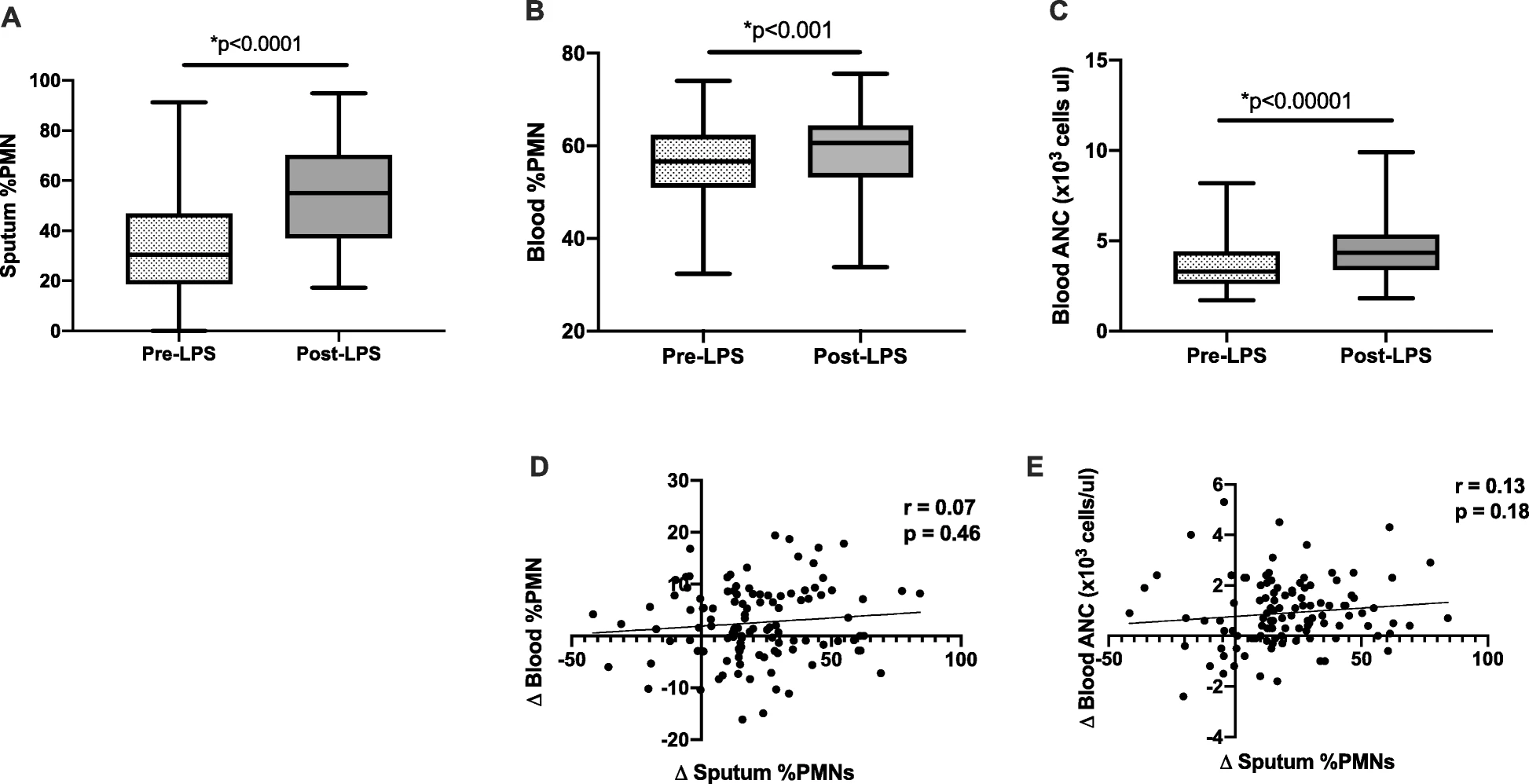Letter to the Editor – Open Access
Respiratory Research
Amika K. Sood, Allison J. Burbank, Michael Lawson, Haibo Zhou, Heather B. Wells, David B. Peden & Michelle L. Hernandez
Abstract
Background
Endotoxin is a component of particulate matter linked to respiratory disease. Our group has shown that experimental endotoxin inhalation challenge reproducibly triggers neutrophilic inflammation in the airways and in peripheral blood. Sputum induction is currently the only available method for assessing airway neutrophilia but is laborious and time-consuming. This analysis examined the correlation between systemic and airway inflammatory responses to endotoxin to determine if peripheral blood could serve as a surrogate marker for neutrophilic airway inflammation.
Methods
We conducted a retrospective study of 124 inhaled endotoxin challenges conducted at our center using 20,000 endotoxin units (EU) of Clinical Center Reference Endotoxin (CCRE). Venipuncture and induced sputum samples were obtained at baseline and 6 hours after completion of endotoxin challenge. The relationship between change in sputum neutrophils (post-challenge – baseline) and change in peripheral blood neutrophils (post-challenge – baseline) was assessed using Spearman’s correlation analyses.
Results

Inhaled endotoxin induced a significant increase in mean sputum percent neutrophils and peripheral blood absolute neutrophil counts in healthy adults with or without mild asthma, but no significant correlation was found between airway and systemic neutrophilia (r = 0.13, p = 0.18). Stratification by degree of airway neutrophil response and by atopic or asthmatic status did not change the results.
Conclusions
Inhalation challenge with endotoxin safely and effectively induces airway neutrophilic inflammation in most individuals. Increases in endotoxin-induced peripheral blood neutrophils do not correlate well with airway responses and should not be used as a surrogate marker of airway inflammation.
